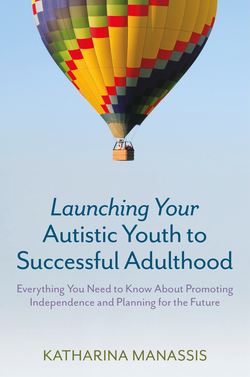Читать книгу Launching Your Autistic Youth to Successful Adulthood - Katharina Manassis - Страница 28
На сайте Литреса книга снята с продажи.
Why is independence challenging and how can you help?
ОглавлениеFear is the main reason independence is challenging at this age. We all rely on predictable routines to ease anxiety, and autistic youth rely on them even more than most people. When high school ends, so do those predictable routines, making this a very anxiety-provoking time. When you expect autistic youth to develop new, independent behaviors at a time when they are already anxious about life changes beyond their control, it may be too much to ask.
For this reason, you should start promoting independence during the high school years and continue to do so in the years beyond. By doing this, you avoid adding another “new thing” (i.e. the expectation of greater independence) to the challenges associated with leaving high school. You can help reduce anxiety further by providing what is termed a “secure base” for your youth at home (Waters, Ruiz and Roisman 2017). Although this idea has been more thoroughly studied in younger children, it is relevant to teens and young adults as well. A secure base doesn’t mean allowing youth to cocoon in their rooms all day. Instead, you encourage them to venture out, control your own anxieties about what they might encounter, and provide an emotionally secure place for their return. You acknowledge their efforts, praising every small step forward. You show empathy when they encounter obstacles. You avoid conflict and criticism as much as possible.
In addition, review some of the predictors of employment and education listed in Chapter 1, as these are associated with independence too. Recall the main themes of early preparation (e.g. high school courses geared towards post-secondary goals; part-time or volunteer work in high school), building daily living skills (e.g. self-care, chores), and having positive expectations. See if any of these can be developed further in your circumstances. We return to daily living skills later in this chapter.
There is also some evidence that early childhood intelligence is predictive of independence over time (Billstedt, Gillberg and Gillberg 2007; Magiati, Tay and Howlin 2014), though this is a factor you cannot change. However, you can set goals for independence which are consistent with your youth’s abilities. For example, a youth with an intellectual disability might work on skills related to basic self-care; a youth in the middle of the spectrum on managing a vocational school or employment program with adult assistance; a high-functioning youth on organizational and social skills needed for college.
In summary, early preparation, making home a supportive and encouraging “secure base,” building daily living skills, having positive expectations, and setting goals consistent with youth abilities provide a good start to promoting independence in transition-aged autistic youth.
